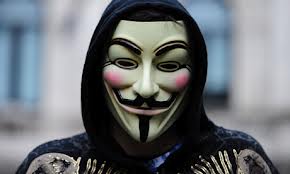Should You Blog Anonymously?

 For whatever reason someone has to write a blog, the subject or topics may be controversial or the blogger wants their content to speak for itself. Other bloggers are concerned for their own safety, and don’t want online users to be able to access their private information offline. For these reasons, many bloggers have preferred to keep their name and identity a secret. Should you keep your identity a secret on your blog? There are several benefits and drawbacks to blogging anonymously, such as:
For whatever reason someone has to write a blog, the subject or topics may be controversial or the blogger wants their content to speak for itself. Other bloggers are concerned for their own safety, and don’t want online users to be able to access their private information offline. For these reasons, many bloggers have preferred to keep their name and identity a secret. Should you keep your identity a secret on your blog? There are several benefits and drawbacks to blogging anonymously, such as:
Greater Freedom of Speech
If you are blogging anonymously, then you know that what you write on your blog won’t be traced back to you. This can be helpful when you are blogging about your job, family, or other confidential information. While it’s not advisable to write about confidential or private information (especially when it comes to your job or family), being able to share your feelings and thoughts in a private forum can help you be more open with what you want to say.
Protection From Predators
Many bloggers may choose to keep their entire identity a secret, whereas others may choose to keep their significant others, children, or family private. This is to protect their privacy and to prevent identity theft or break-ins. For instance, if someone blogs about going on vacation, a thief could find their address based on their name, and break into their house while they are home.
Building Mystery
Depending on your blog’s topic, being anonymous may increase readers’ interest and provide intrigue to what you are publishing online. In some cases, anonymous content helps your audience “see” themselves in your words. This makes them be able to apply their own experiences to your ideas and descriptions, which can turn them into loyal readers.
Looser Credibility
If you choose to blog anonymously, depending on the topic, it may loosen your credibility with your readers. Many readers may think that if you don’t put your face to your words, then you don’t stand by them. In addition, any great ideas you may have aren’t claimed by your identity, which may increase the likelihood they could get stolen.
Less Opportunities
If you are looking for sponsorships, networking opportunities, or other instances where you interact with other bloggers or companies, being anonymous make not be desirable. Other people and companies like knowing the identity of the person they are working with, which goes back to preserving your credibility.
Kelsey Jones runs her own social media and search marketing business, MoxieDot where she helps clients grow their online presence. She was voted one of the top 100 marketers of the year by Invesp in 2009 and has worked for Yelp, Run.com, and Bounty Towels. Check her out at MoxieDot and on Twitter @wonderwall7.

